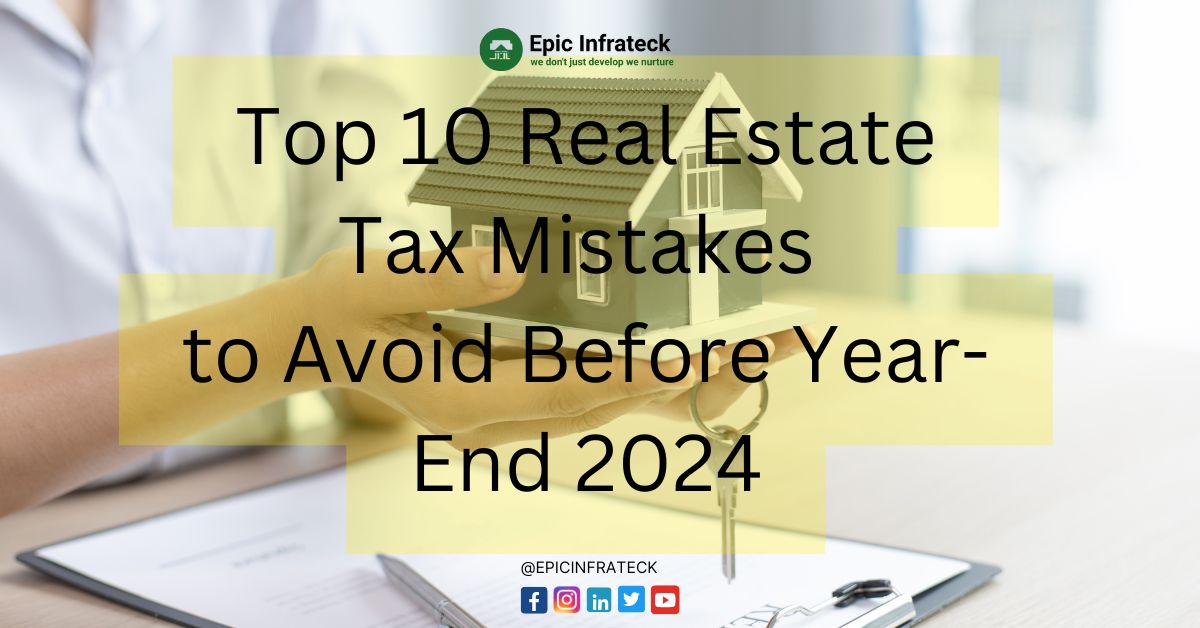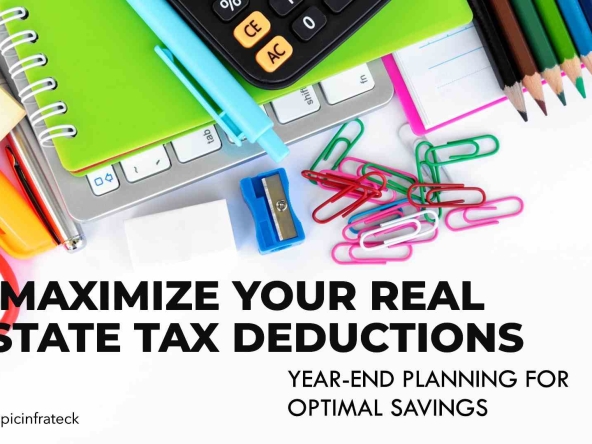With the end of 2024 fast approaching, real estate investors and property owners need to make sure they’re not leaving money on the table when it comes to taxes. Common tax mistakes can lead to missed deductions, unexpected liabilities, and even penalties. Here’s a practical guide to help you avoid the most frequent tax errors before year-end.
1. Missing Out on Depreciation Deductions
One of the greatest advantages for real estate investors is the ability to claim depreciation on their properties. Many new investors overlook this deduction, which allows them to recover the cost of wear and tear on their properties over time. For residential rental properties, this spans 27.5 years, and for commercial properties, it’s 39 years. Make sure you’ve calculated and claimed all allowable depreciation.
2. Failing to Track All Deductible Expenses
It’s easy to forget about minor expenses throughout the year, but every cost related to your property—such as repairs, maintenance, utilities, and property management fees—can add up to significant deductions. Keep detailed records of all expenses, no matter how small, and ensure that they’re categorized properly before filing.
3. Misclassifying Improvements vs. Repairs
There’s a crucial difference between improvements and repairs, and the IRS treats them differently for tax purposes. Repairs, such as fixing a broken window, are fully deductible in the year incurred. Improvements, like replacing a roof or renovating a kitchen, must be depreciated over time. Misclassifying these can lead to overpaying taxes in the short term.
4. Overlooking Passive Activity Loss Limitations
If your real estate activities qualify as passive, there are restrictions on the losses you can claim. Passive activity loss rules often prevent investors from using rental property losses to offset other income unless they meet certain criteria. If you’re not actively involved in managing your rental properties, you may be subject to these limits. Consult a tax advisor to understand how this applies to your situation.
5. Neglecting to Use the Section 179 Deduction and Bonus Depreciation
For eligible property improvements and purchases, the Section 179 deduction and bonus depreciation allow you to deduct the full cost of certain assets in the year they are placed into service. If you’ve made qualifying improvements—such as new HVAC systems, roofing, or security systems—you could see significant tax savings by claiming these deductions. However, many real estate owners forget to take advantage of this accelerated depreciation.
6. Ignoring the Benefits of a 1031 Exchange
If you’re selling an investment property, failing to use a 1031 Exchange could result in hefty capital gains taxes. This tax-deferral strategy allows you to reinvest the proceeds from the sale into a like-kind property, deferring taxes indefinitely. Be sure to complete all transactions and paperwork for a 1031 Exchange before year-end if you’re planning to reinvest.
7. Not Maximizing Deductions for Home Offices
If you manage your real estate business from home, you may be able to deduct a portion of your home expenses, such as utilities and mortgage interest, through the home office deduction. However, many investors either don’t know they qualify or are hesitant to claim this deduction due to misconceptions about audits. If you use part of your home exclusively for your real estate business, ensure you claim this benefit correctly.
8. Failing to Plan for State and Local Taxes
Real estate investors often focus on federal taxes but neglect the impact of state and local taxes. Property taxes, sales taxes, and other local levies can add up, especially if you own properties in multiple states or cities. Research the tax laws for each location where you own property to ensure you are complying with all local requirements and making the most of deductions like property tax write-offs.
9. Not Using Professional Help
The complexity of real estate tax laws makes it easy to make costly mistakes if you’re handling everything on your own. Hiring a tax professional with expertise in real estate can save you time and money. They can ensure that you’re taking advantage of every available deduction, maximizing depreciation, and staying compliant with the latest tax rules. Skimping on professional help often leads to missed savings and errors that could trigger audits.
10. Missing Charitable Donation Opportunities
If you’re thinking about making charitable contributions or donating property, complete these transactions before December 31 to take advantage of deductions for 2024. Donating real estate, for example, can allow you to avoid capital gains taxes while receiving a charitable deduction based on the property’s fair market value. Be sure to have the necessary appraisals and documentation to support the donation.
Conclusion: Stay Ahead of Tax Deadlines
As you approach year-end, take time to review your real estate holdings and financials. By addressing these common tax mistakes, you’ll not only maximize your deductions but also position yourself for long-term financial success. Ensure that all required documents, receipts, and tax filings are prepared well in advance, and seek professional guidance if you’re unsure of any aspect of tax planning.
A few careful steps now can save you thousands come tax season—and keep you focused on growing your real estate portfolio, not dealing with tax headaches.




